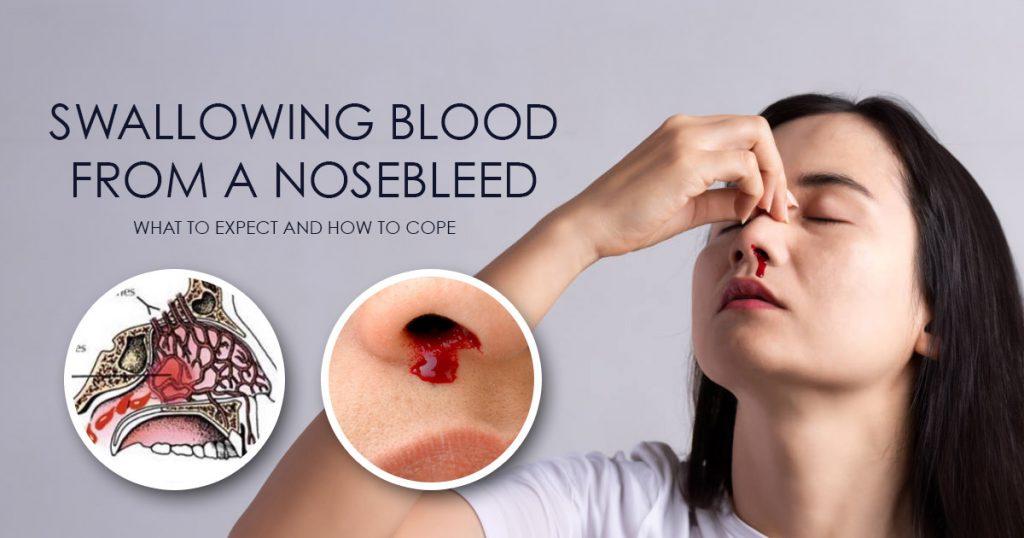Nosebleeds, also known as epistaxis, are something many people experience at some point. They can be surprising and involve a sudden flow of blood from the nostrils. Nosebleeds happen when the tiny blood vessels inside the nose break, which can occur for many reasons. Common causes include dry air, frequently picking your nose, nasal infections, allergies, and minor injuries to the nose. Sometimes, nosebleeds can also indicate more serious health problems like high blood pressure, blood clotting issues, or even certain types of cancer.
A study at the Columbia University Irving Medical Center showed that frequent nosebleeds might be a sign of broader health issues, highlighting the importance of understanding and managing this condition properly.
What Happens During a Nosebleed?
When you have a nosebleed, the blood comes from tiny blood vessels inside your nose. These vessels are very delicate and can break easily. When they do, blood starts flowing out of your nostrils. The inside of your nose is lined with moist tissues that have a lot of these small blood vessels close to the surface. Because they’re so fragile, even a little injury or irritation can make them bleed.
Sometimes, instead of coming out of your nostrils, the blood can run down the back of your throat, especially if you tilt your head back. When this happens, the blood can mix with spit in your mouth, making it easy to accidentally swallow.
What to Expect if You Swallow Blood from a Nosebleed
If you accidentally swallow blood from a nosebleed, it’s good to know what might happen next. Is it bad to swallow blood? Usually, swallowing a small amount isn’t harmful, but it can make you feel uncomfortable.
When you swallow blood, it can irritate your stomach. Your stomach isn’t used to having blood in it, so this can cause nausea and might even make you throw up. This happens because blood in the stomach can upset your digestive system.
So, what should you do if you swallow blood from a nosebleed?
- First, try to stay calm. Panicking won’t help and can make things worse.
- Then, sip cool water. This can help dilute the blood in your stomach and make you feel better.
- Watch how you feel afterward. If you have severe stomach pain, keep feeling nauseous, start vomiting, or see blood in your vomit or stool, it’s important to get medical help right away.
These symptoms mean your body is struggling with the ingested blood and needs professional attention.
Can Swallowing Nosebleed Lead to Serious Issues?
Swallowing a little blood from a nosebleed usually isn’t serious, and it’s very unlikely that you could die from it. However, if you swallow a lot of blood, it can cause problems like stomach irritation, nausea, or vomiting. In very rare cases, swallowing a large amount of blood could lead to more severe issues.
Here are some ways to prevent serious problems:
- Lean Forward: Always lean forward when you have a nosebleed to keep the blood from going down your throat.
- Pinch Your Nose: Gently pinch the soft part of your nose to help stop the bleeding.
- Stay Calm: Keeping calm helps you manage the situation better.
- Spit Out Blood: If blood gets into your mouth, spit it out instead of swallowing it.
- Use a Cold Compress: Put a cold compress on your nose or the back of your neck to slow the bleeding.
- Keep Nasal Passages Moist: Use saline sprays or a humidifier to keep your nose moist and reduce the risk of future nosebleeds.
- Avoid Nose Picking and Blowing: Don’t pick your nose or blow it too hard—it can cause more bleeding.
- Seek Medical Help for Frequent Nosebleeds: If you often get nosebleeds, see a doctor to check for any underlying health issues.
You can lessen your risk of ingesting blood and steer clear of potentially dangerous situations by following these instructions.
What to Do if You Swallow a Lot of Blood from a Nosebleed
In very rare cases, swallowing a large amount of blood from a nosebleed can cause serious problems like severe stomach irritation or other complications. If this happens and you feel very sick, it’s important to get medical help right away.
Also, if you have frequent nosebleeds, you should see a doctor. Frequent nosebleeds might mean there’s an underlying health issue that needs attention. Taking these steps can help keep you safe and give you peace of mind.
